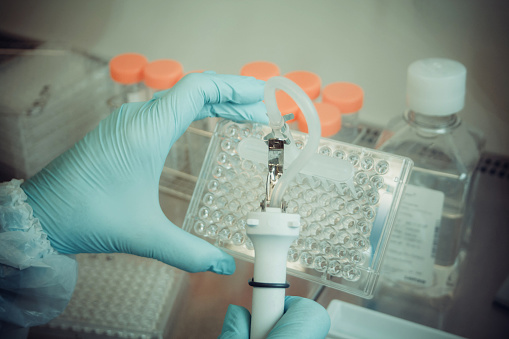Canadian researchers have launched the world’s first clinical trial of a novel investigational therapy that uses a combination of two viruses to attack and kill cancer cells and stimulate an anti-cancer immune response. This approach could have fewer side effects than conventional chemotherapy and radiation.
It was jointly discovered and is being developed by Dr. David Stojdl (Children’s Hospital of Eastern Ontario and the University of Ottawa), Dr. Brian Lichty (McMaster University) and Dr. John Bell (The Ottawa Hospital and the University of Ottawa) with their respective research teams and colleagues. Drs. Bell, Lichty and Stojdl began investigating viral therapies for cancer nearly 15 years ago when they worked together at The Ottawa Hospital. Funded by the Ontario Institute for Cancer Research and coordinated by the NCIC Clinical Trials Group, the clinical trial is expected to enroll up to 79 patients at four hospitals across Canada – The Ottawa Hospital, the Juravinski Cancer Centre of Hamilton Health Sciences, Princess Margaret Cancer Centre of the University Health Network in Toronto and the Vancouver Centre of the BC Cancer Agency. Up to 24 patients will receive one of the viruses and the rest will receive both, two weeks apart.
The two viruses being tested are called MG1MA3 and AdMA3. MG1MA3 is derived from a virus called Maraba, which was first isolated from Brazilian sandflies, while AdMA3 is derived from a common cold virus called Adenovirus. Both of these viruses have been engineered to stimulate an immune response against cancer cells that express a protein called MAGE-A3, but the Maraba virus also achieves an extra layer of anti-cancer activity by replicating inside many kinds of cancer cells and killing them directly. These viruses are manufactured in specialized facilities at The Ottawa Hospital and McMaster University.
“The idea behind this trial is to use the Adenovirus to prime the patient’s immune system to recognize their cancer, and then use the Maraba virus to directly kill their cancer and further stimulate their immune system to prevent the cancer coming back,” said Dr. Brian Lichty, associate professor at McMaster University. “We’re enthusiastic about the potential of this unique therapy.”









